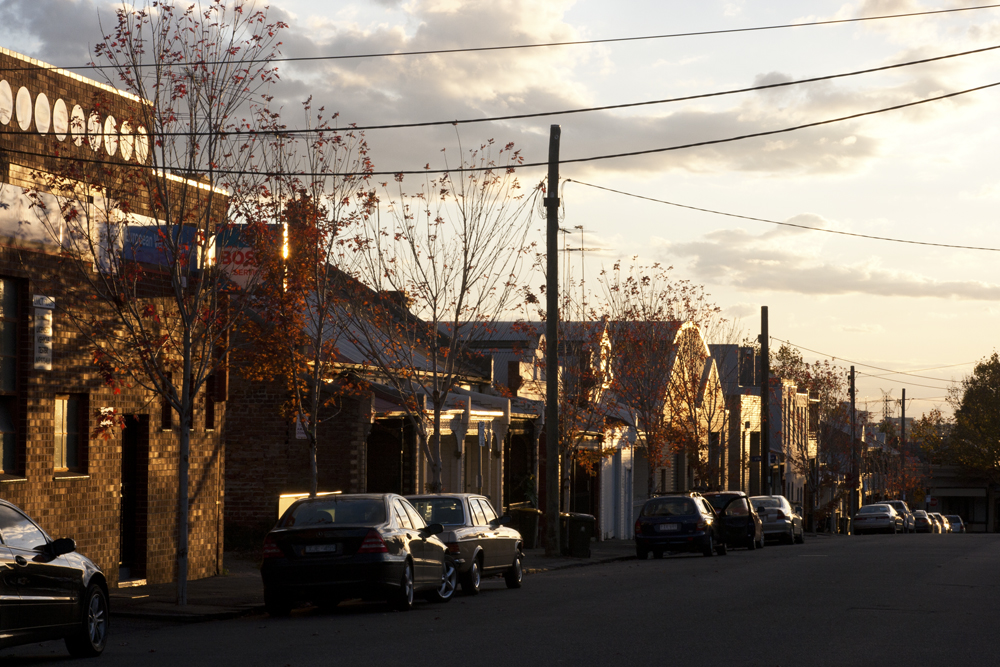The shape of things to come
A brighter future for people and planet

Property of privilege
Posted on May 24, 2017 By shapeofthingstoni

In the crooked old house in Kensington the morning sun sluices across the long-neglected garden to spread across the worn timber floor. Out the back there’s a compost heap seeping life back into sleeping soils in preparation for Spring. In the evenings my newly-hung curtains hold the warmth in and the house cracks its bones. It’s all starting to come together, but now I’m leaving…
I rent, and in the mess that is the Melbourne housing market my rights are few and my money limited. Situations change and I must move out and on. A new space to try to make home, finding harmony with strangers and making peace with the required compromises. No food scraps returning to soil, no renewable energy contracts, no walkable neighbourhood tucked into a corner of the inner city.
It’s a disappointing reminder that for so many of us, sustainable living is an out-of-reach privilege. We’re priced out of the suburbs with great public transport and farmer’s markets. We’re forced to move at the whim of a landlord or a rise in budget-stretching rents. We live where the work is and move when that changes, leaving behind friends and community; the imprints of our lives. It’s a modern malaise with high costs for our personal wellbeing, the community and our environment, all compounded by a system that was never designed for these sorts of stressors.

Hobart’s small-city magic means capital city facilities in a smaller community
Packing my life up yet again provides a poignant reminder of my own past privilege: an inner-city cottage within walking distance to work in an urban miracle called Hobart, Tasmania. How lucky I was to have that, and how lucky are those who still do, so long as luck and privilege are the keys to sustainable housing dreams.
What if it were different? What if we designed our cities, our economies and our communities in different ways? There’s wealth of ideas out there on more human systems and structures that value more than maximum profits and deification of economic growth. There are ways to plan cities that build in social and environmental justice (fair access to services and shared impacts of pollution and development); ways to build housing that fosters community and reduces environmental impacts; ways to structure work that balance security with flexibility. There are ways, too, of addressing the rising inequality that concentrates wealth and power in the hands of the few, though none of them easy.
I’d like to explore them. To look at ways to take sustainability from a nice thing to do if you can afford it, into being the way things are, an integral part of our systems.
For now, I’m saying farewell to the community gardens and cute cottages of Kensington and heading out into a housing estate in the ‘burbs, accepting my circumstances and making do as best I can. At least I’m pretty good at packing these days.

My street no longer, one Melbourne morning
Share the conversation:
Related
2 Comments on “Property of privilege”
Archives
Categories
Other places to find me
The shape of things to come
Nope, can’t bring myself to like this post. I’m so sorry that this place didn’t last – it looked so promising and you were starting to get settled. Sounds like you are not enamoured with the place you are moving to, and for that I am very sorry. It shouldn’t be this difficult; as you say, sustainability and community should be a given. Your situation makes me feel very sad, and knowing that you are far from alone in this, even sadder.
Sorry to hear you are having to move on, as someone who has had more than 30 addresses in my life I know the feeling, thankfully I wont be moving again and when I’m finished just pop me in the compost 🙂
I’m a great believer in small communities as a solution to many problems, I look forward to reading your thoughts. I like the idea of having locally shared small scale electricity supplies, water treatment, gardens etc.